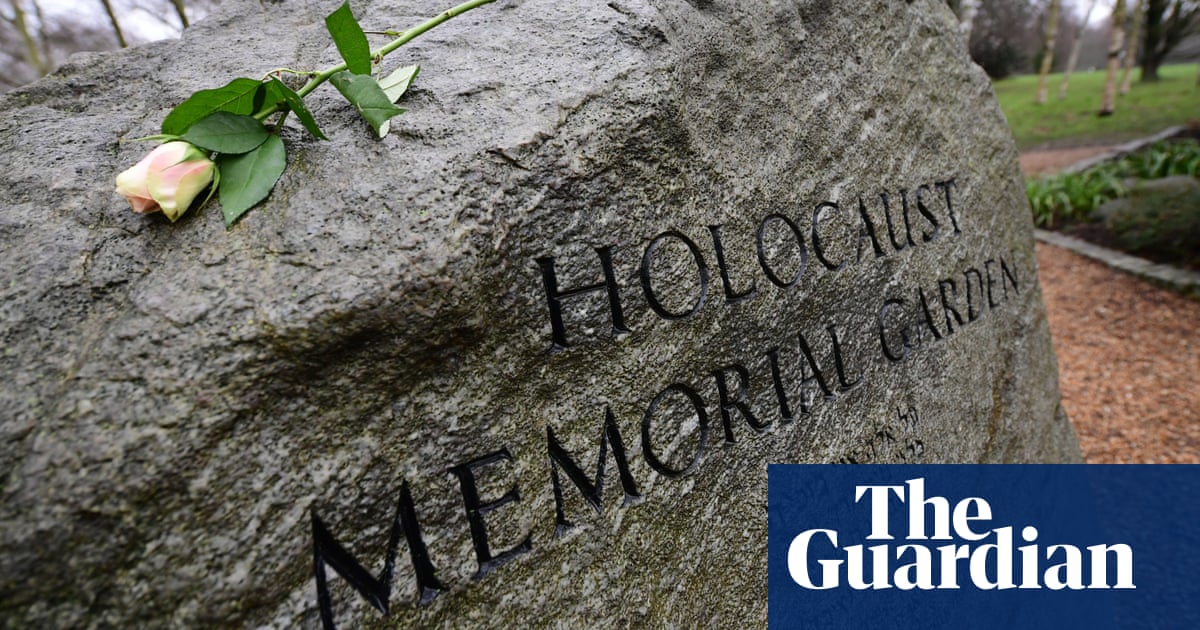
A court has ordered two prominent historians to apologise to an elderly woman who claimed they had defamed her late uncle over his wartime actions, in a case seen as critical to independent Holocaust research in Poland.
Prof Jan Grabowski of the University of Ottawa and Prof Barbara Engelking of the Polish Center for Holocaust Research were accused of defaming Edward Malinowski by suggesting in a book that he gave up Jews to Nazi Germans.
In a civil case condemned by Jewish organisations and historians as an attack on free academic inquiry, the researchers were told to apologise for a passage in Night Without End: The Fate of Jews in Selected Counties of Occupied Poland, a 1,600-page work they co-edited, which the court said “violated Malinowski’s honour” by “providing inaccurate information”.
The court did not demand the historians pay compensation, but ordered them to write to Malinowski’s niece, Filomena Leszczyńska, who brought the case, publish a statement on the website of the Center for Holocaust Research, and correct the passage in any future edition.
Research shows thousands of Poles risked their lives to help Jews, but thousands also participated in the Holocaust. Poland’s ruling nationalist Law and Justice party (PiS) party has said it views allegations of Polish complicity as dishonouring the country.
The judge, Ewa Jonczyk, said the ruling “must not have a cooling effect on academic research”, but Engelking said the case aimed to have precisely that effect. “There is no doubt this is some sort of an effort to create a freezing effect - to show academics that there are issues on which it is not worth focusing,” Engelkring said.
The World Jewish Congress said it was “dismayed” by the ruling, while the Conference on Jewish Material Claims against Germany, a major sponsor of historical research on the Holocaust, and the World Jewish Restitution Organization (WJRO) protested “in the strongest terms”.
“The telling of history must not be blocked or restricted – this decision damages an open and honest coming to terms with the past,” WJRO chair Gideon Taylor said. “Poland must encourage open inquiry into its history.”
Grabowski, a Polish-Canadian history professor whose father was a Holocaust survivor, told Gazeta Wyborcza newspaper he respected the court’s judgment, but that the two academics would appeal.
The charges against Grabowski and Engelkring were condemned by the Yad Vashem Holocaust memorial in Jerusalem, which said they amounted to “an attack on the effort to achieve a full and balanced picture of the history of the Holocaust”.
Other historical institutions also strongly criticised the case, including the Paris-based Foundation for the Memory of the Shoah, which called it a “witch-hunt” and a “pernicious invasion into the very heart of research”.
Leszczyńska, 81, had demanded 100,000 złotys (€22,300) in damages and a public apology from the historians for allegedly defaming her uncle, the wartime mayor of Malinowo village in north-east Poland.
According to the passage, Malinowski allowed a Jewish woman to survive by helping her pass as a non-Jew. But the woman, Estera Siemiatycka, is also quoted as saying the mayor may have been implicated in a massacre of local Jews by German soldiers.
Leszczyńska said the mayor, who was acquitted of collaboration in 1950, aided Jews and the book contained “omissions and methodological errors”. She was backed by the Polish Anti-Defamation League, which aims to “defend Poland’s good name”.
The league, which has close ties to the Polish government and in the past received state grants, argued that the two researchers were guilty of “defiling the good name” of a Polish hero and, by extension, harming the dignity and pride of all Poles.
Maciej Świrski, the organisation’s head, said before the trial that academic research “has to be conducted with probity” and criticised “attempts at establishing an academic consensus on Polish co-responsibility for the Holocaust”.
Leszczyńska’s lawyer, Monika Brzozowska-Pasieka, said her client was “extremely pleased with this verdict”, adding that compensation was “a secondary issue from the beginning.”
Critics have accused Poland’s government of trying to whitewash cases of complicity in the genocide of Jews under Nazi occupation. In 2018, it passed a law making it a civil offence to falsely blame the Polish nation or state for Holocaust crimes, dropping a plan to criminalise the offence only after an international outcry.
Last week Katarzyna Markusz, a journalist, was questioned by police on suspicion of “slandering the Polish nation”, a crime carrying a penalty of up to three years in prison, for writing that “Polish participation in the Holocaust is a historical fact”.
The Polish government has denied any involvement in the case, saying it is a private matter, and Polish officials, including the country’s ambassador to Israel, Marek Magierowski, said it was only a civil case and did not represent a threat to freedom of speech.
Six million Poles, including 3 million Jews, died during the country’s occupation by the Nazis from 1939 to 1945. Unlike other occupied countries, there was no collaborationist government in Poland.
Catholic Poles’ attitudes to their Jewish neighbours varied greatly, ranging from showing immense courage to indifference and sometimes cruelty, including collaborating with the Germans in hunting down and killing Jews.
Israel has named more than 7,000 Poles – a greater number than any other nationality – as “righteous among the nations” for risking their lives during the Holocaust to save Jews from extermination.












